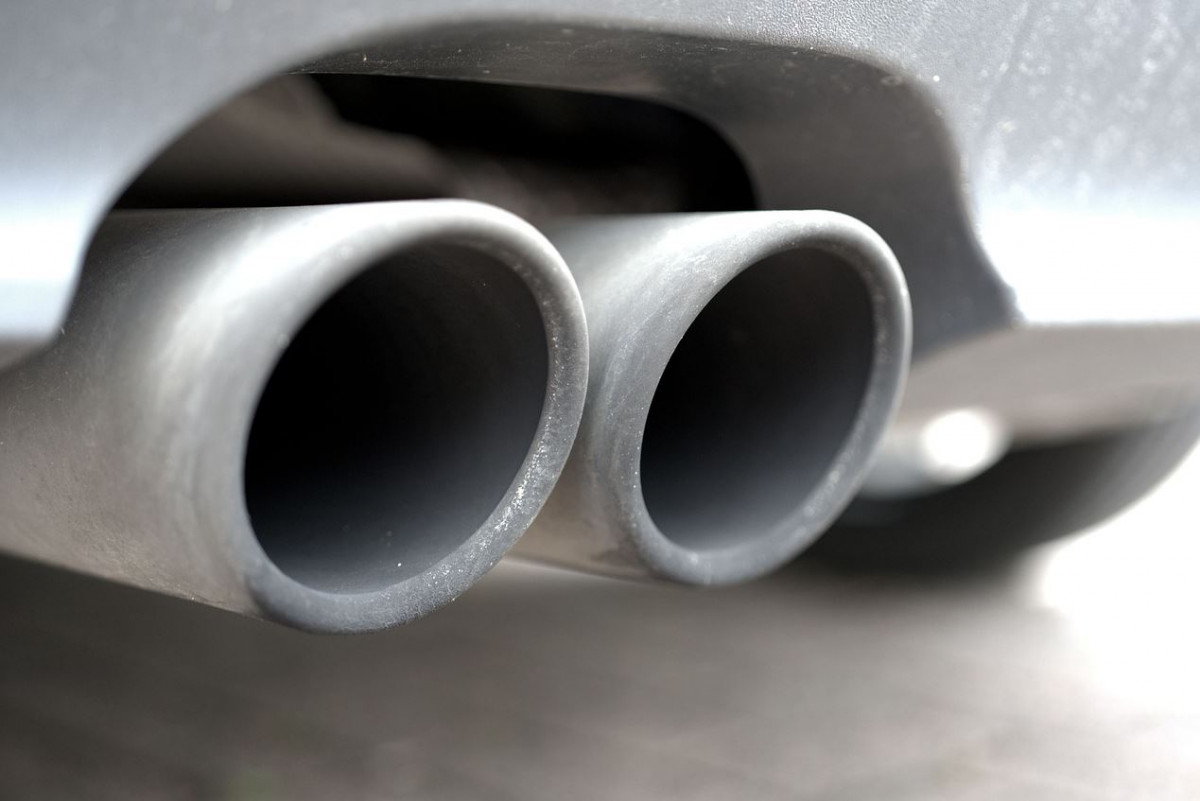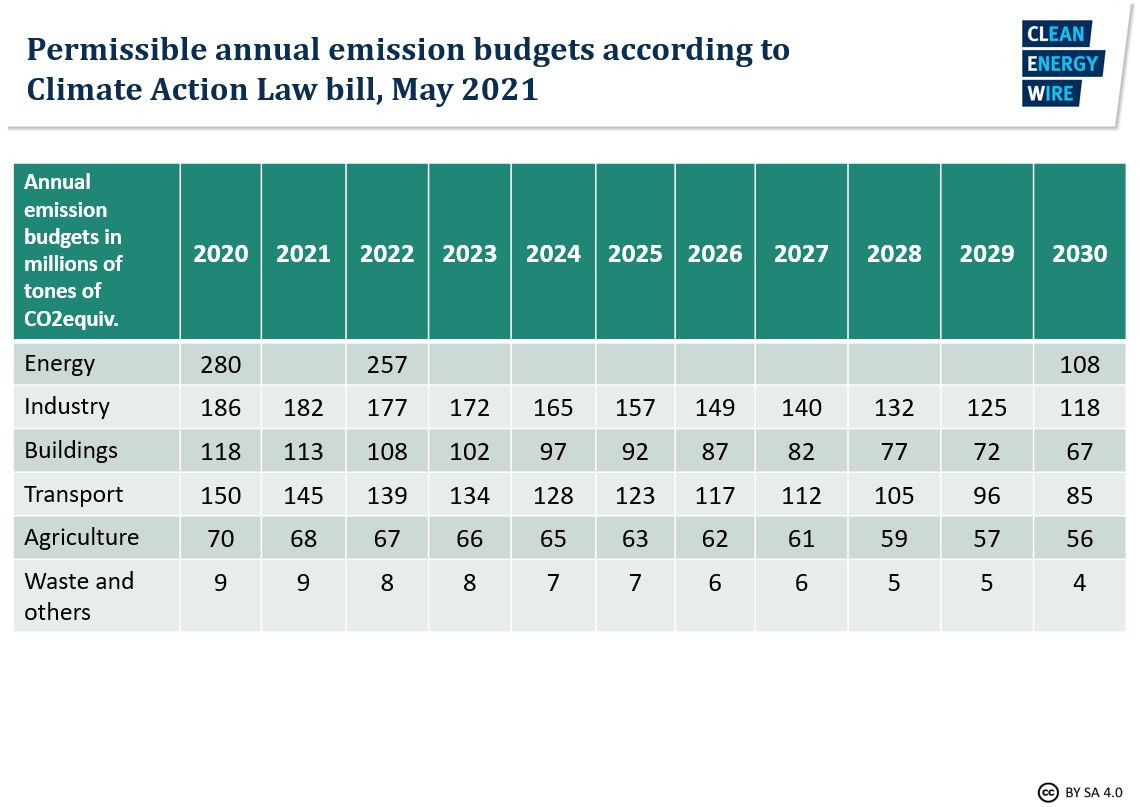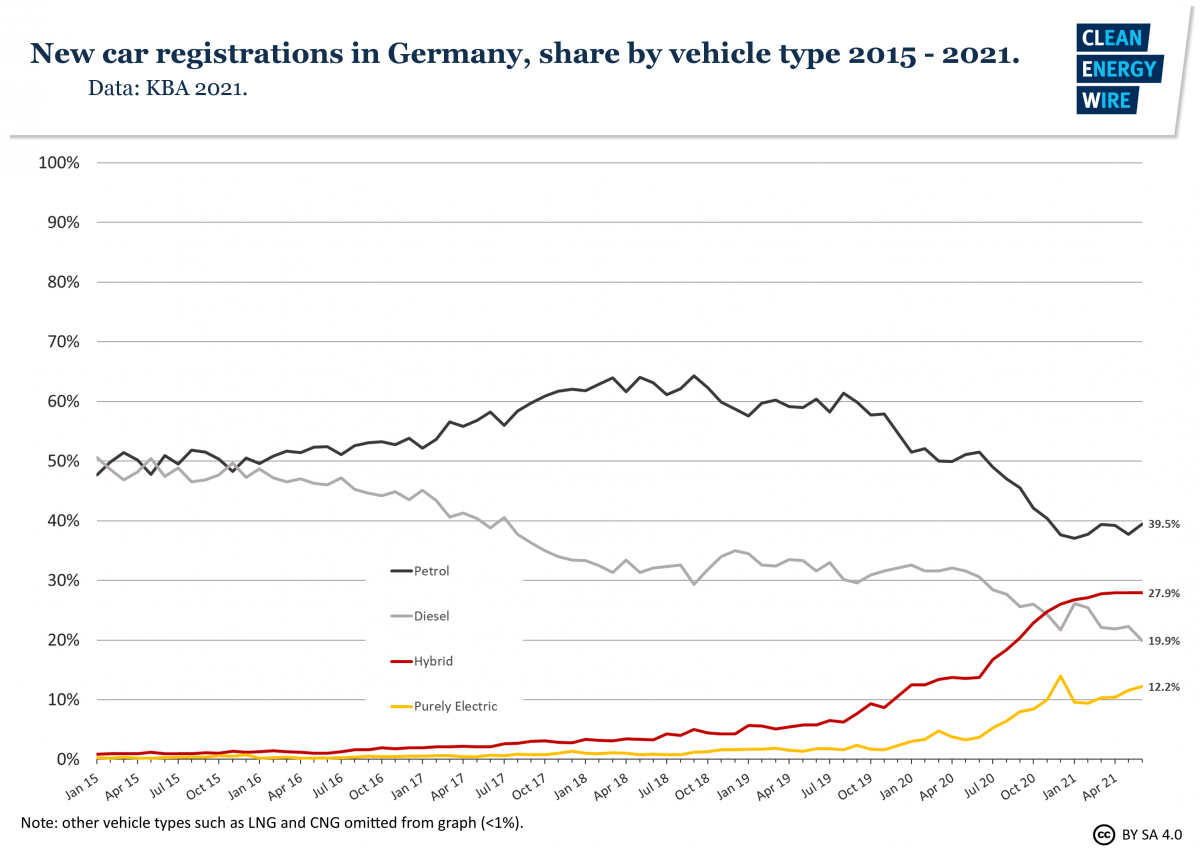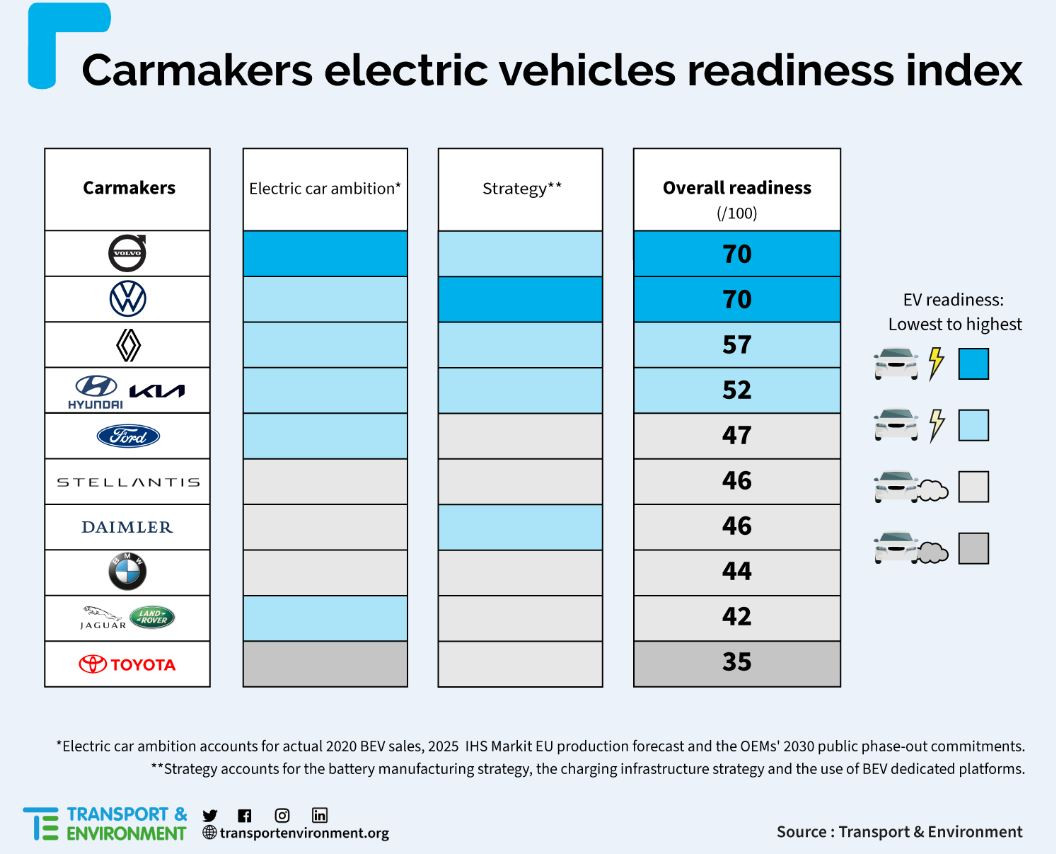German election primer – Fight over combustion engine phase-out heats up
What role does low-emission mobility play in the election campaign?
- The fight against climate change is one of the core issues in the German election campaign, and the shift to zero-emission mobility has emerged as one of the most controversial topics. The sensitivity of the issue was highlighted only last month: The Greens' chancellor candidate, Annalena Baerbock, spoke out in favour of bringing forward fuel price rises in order to speed up the transition to electric vehicles. Her comments elicited a barrage of criticism from all other parties present in the German parliament, which said the transition must not overburden drivers.
- As in previous elections, the issue of introducing a general speed limit on Germany's autobahns has also become a hot potato of the campaign.
- In the background looms the big question whether Germany should introduce a phase-out date for the sale of combustion engine cars. Parties are divided on the issue (see below for details).
Why is the shift to clean mobility such a controversial topic in Germany?
- Germany boasts more than 800,000 direct automotive manufacturing jobs, almost four times as many as Europe's number two manufacturing location France, and is home to global car brands Volkswagen, Audi, Porsche, Mercedes-Benz and BMW. Cars are one of the country's most important export items, and the industry has long been a pillar of its economic success.
- The country's carmakers and many suppliers have been slow to embrace the shift to electric mobility, triggering widespread worries that they could be left behind on global markets and fears of massive job losses in Germany's carmaking regions.
- Germany is the only industrialised country in the world without a general speed limit on its famed autobahns, and has many ardent defenders of this policy.
What are Germany's climate targets for the mobility sector?
- Germany has brought forward its target date for reaching climate neutrality to 2045, and has set annual emission targets for each sector to reach that goal. Emissions in the transport sector will have to drop by more than 40 percent within this decade (see graph), with increasingly steep reductions towards the end of the 2020s.
- According to government advisors, electric cars will need to account for most new registrations in just four years and the sale of new combustion engine cars will have to be phased out from 2030. To achieve the federal government's climate targets in the transport sector, around a third of all vehicles – some 14 million cars – will need to be electric by 2030, the National Platform Future of Mobility (NPM) has said. Four out of five newly registered vehicles will have to be electric vehicles (EVs) by that date.
What's the state of play in Germany's shift to low-emission mobility?
- Germany has been struggling to lower emissions in the transport sector, which have remained broadly stable for decades as gains from more efficient engines have been eaten up by heavier cars.
- The spread of electric vehicles has been slow in comparison to many other markets, but thanks to government incentives, registrations have picked up sharply since last year (see graph). Currently, more than one in ten new cars is fully electric, and an additional one is a plug-in hybrid. Germany is about to cross the threshold of having one million electric cars on its roads this summer, around half a year later than originally planned.
- While an increasing number of countries have decided to put an end date on sales of combustion engine cars, Germany has resisted that step, in part due to intense industry lobbying. But more and more German carmakers have announced phase-out dates already (see below), partly in response to ever more stringent EU emissions regulations.
What do the parties plan?
- While the Greens and the Left party call for a phase-out of conventional car sales in 2030 in their election manifestos, the ruling coalition partners - chancellor Angela Merkel's conservatives and the Social Democrats -, as well as the business-friendly Free Democrats (FDP), reject an end date (see graph for an overview of transport policies in election manifestos).
- Both the Greens and the Social Democrats are in favour of a general speed limit of 130km/h on the autobahns, while the Left party favours 120 km/h. The conservatives and FDP reject this step.
- Another moot point is the use of synthetic fuels that could make combustion engines climate-neutral but are deemed highly inefficient. The conservatives and the FDP are in favour of using such fuels made with renewable energies in road transport.
- Most parties agree on the need to further invest in Germany's rail services as a way to lower transport emissions.
Lobby groups step up fight over future of combustion engines
- Opponents and advocates of combustion engine cars have both stepped up their lobbying efforts with a view to the September elections.
- German car industry association VDA strongly opposes a sole focus on electric mobility demanded by climate activists. The lobby group insists that "combustion engines are not the problem, fossil fuels are." VDA calls for a "technology-neutral" approach that includes investments in hydrogen fuel cells and synthetic fuels made on the basis of hydrogen produced with renewables, which could be used in combustion engines. But environmentalists reject these technologies, arguing that they are highly inefficient and would therefore require much more renewable electricity.
- The election campaign has also intensified an ongoing debate about the environmental benefits of electric cars. The most recent example is a controversial letter initiated by scientists of the prestigious KIT Karlsruhe to the European Commission, arguing that electric cars cause much more emissions than previously assumed. The publication was widely covered by German media, but its calculations were rejected by electric car proponents and other scientists as an "embarrassing lobbying attempt" to save combustion engines. In a similar vein, the Association of German Engineers (VDI) warned in late 2020 against a narrow focus on e-cars, arguing it was “counterproductive for the environment.” This paper was also widely dismissed for using outdated data and assumptions.
- There has also been much toing and froing about how many jobs could be lost in the transition to electric cars in Germany. While proponents of the continued use of combustion engines warn that a rapid shift to e-mobility could affect hundreds of thousands of jobs, e-car advocates counter that the transition is likely to result in a net employment gain as many jobs are created in e-car and battery production. [For details, see the factsheet How many car industry jobs are at risk form the shift to electric vehicles?]
What are the car industry's plans for zero-emission mobility?
- Spooked by the success of US carmaker Tesla, increasingly stringent EU emissions regulations and the Dieselgate scandal over emissions manipulations, German carmakers are now committed to the shift to electric vehicles. The same is true for major suppliers like Bosch, Continental and ZF Friedrichshafen, but countless smaller companies, which are often heavily specialised in combustion engine technology, have few options to adjust.
- The Volkswagen Group is widely considered an industry leader in the shift to electric vehicles. The Volkswagen brand has said it will end the sale of combustion engine cars in Europe by 2035. Subsidiary Audi has said it will only launch new pure battery-electric models starting in 2026 and end combustion engine sales in the early 2030s. German car brand Opel (Vauxhall in the UK), part of the Stellantis Group, plans to become electric-only by 2028.
- Neither the Daimler Group with its Mercedes-Benz brand nor rival BMW have set an end date to combustion engine sales. Both companies continue to bet heavily on plug-in hybrids, which are contested by climate activists because they are often driven in combustion engine mode. But both have repeatedly stepped up their electrification plans, also in the face of pending EU emissions regulations.
- US electric carmaker Tesla is currently building its European "gigafactory" near Berlin. The plant is set to churn out hundreds of thousands of electric cars starting around the end of the year, and is widely expected to accelerate the shift to electric cars in Germany and beyond.
What has the outgoing government achieved?
- The government is credited with kick-starting the recent rapid take-up of electric vehicles with generous subsidies. Buyers of pure electric cars can receive up to 9,000 euros, and those opting for a plug-in hybrid up to 6,750 euros.
- The government has also taken up the challenge of establishing the charging infrastructure needed for a fast rollout of electric cars. For example, a tender for the construction of 1,000 fast charging stations starts this summer, and the government has earmarked some two billion euros for development and operation.
- But climate activists say the transport ministry often puts the brakes on the shift to zero-emission mobility instead of boosting it, mainly in response to car industry pressure. Ministry head Andreas Scheuer from the CSU, the Bavarian sister party of Merkel's CDU, is often labelled as a "minister of the car lobby" by the Greens and activists. Since taking office, he had 80 direct contacts with car industry representatives, but only one with environmental organisations, according to his ministry.
- The government has agreed major investments in Germany's rail service in order to lower transport emissions, but environmentalists criticise that the majority of transport infrastructure investments continues to go into roads.
- The transport ministry is also credited with agreeing on an ambitious strategy to double cycling in Germany by 2030, and "transform Germany into a country of cyclists."
All texts created by the Clean Energy Wire are available under a
“Creative Commons Attribution 4.0 International Licence (CC BY 4.0)”
.
They can be copied, shared and made publicly accessible by users so long as they give appropriate credit, provide a
link to the license, and indicate if changes were made.






